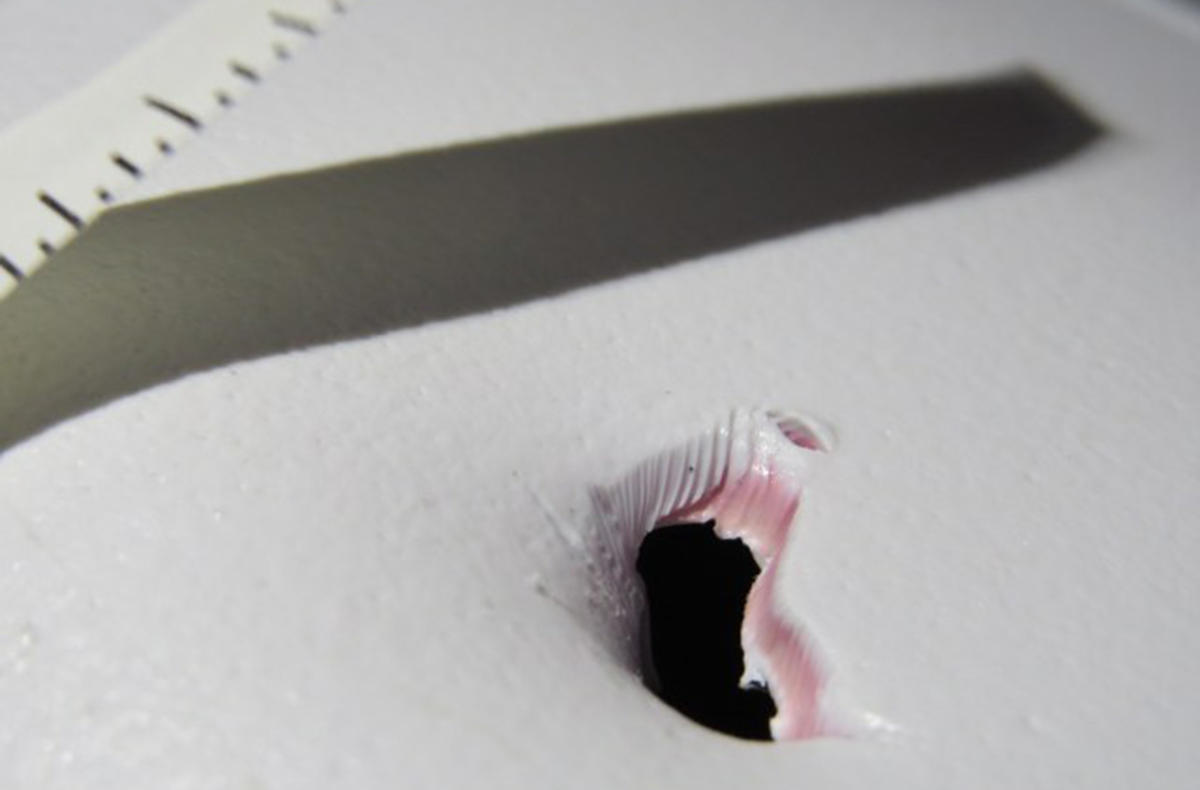Plymouth Beaches Closed As Experts Hit the Waters in Search of Great White

Images via State Marine Fisheries
Plymouth’s public beaches were closed down on Thursday as experts from several state and local departments hit the waters in search of the Great White shark that flipped over two kayakers a day prior, before biting into one of their boats.
A spokesperson from the Plymouth Harbormaster’s office told Boston they have teamed up with officials from the Massachusetts Environmental Police and the state’s Marine Fisheries Department to scour the ocean waters off Manomet Point where Wednesday night’s attack occurred.
“They are going to be patrolling the area of the incident and just see if they can see anything out there,” the spokesperson said. “They are just trying to maybe get some pictures and monitor him and hopefully get a tag on the shark if possible.”
The Massachusetts State Police are also observing the waters, but they’re doing so from the skies. “Today the Air Wing is flying over the area with a scientist for State Marine Fisheries to allow the Fisheries official to monitor for sharks,” police said in a statement.
State Police and the Marine Fisheries office released images Thursday following the attack in Plymouth. The photos show police towing the two kayaks back to shore, after the two women sitting in them were rescued by the Harbormaster, as well as the large, 18-inch bite marks left by the Great White that completely punctured one of the kayaks.
“The size and pattern of the bite suggest an exploratory bite from a Great White Shark,” police said, noting the striations around the tooth hole caused by the serrated edges found on a Great White’s teeth.
As a precaution as they continue to monitor the waters, Plymouth officials closed down all of their public beaches, and urged swimmers that want to go into the waters off of private beaches to only dip in up to their waists. Plymouth officials said they were closing down Long Beach, Whitehorse Beach, and beach areas along Stephen’s Field and Nelson Park until further notice.
“We are strongly advising that people do not go swimming because of this sighting and shark activity in the area,” the town said in a statement. “If beach patrons choose to swim, they may do so at their own risk with the understanding that if they choose to enter the water, they should do so cautiously.”
Wednesday’s rare attack, which the two kayakers managed to escape from unscathed, is being attributed to the rise in the seal population near Manomet Point.
“There’s a really dense seal population there now and the shark may be feeding here as a result,” a spokesperson from the Plymouth Harbomaster’s office said.
Typically, Great White sharks attack their prey from below, swimming up from the murky waters in one quick motion. In Wednesday’s incident, the women reported that the shark surprised them when it emerged suddenly from underneath them, knocking them into the water.
“They didn’t see a fin. They didn’t see any sign of a shark or anything like that. All of a sudden one was sort of pushed up, like something hit the bottom of the kayak,” Plymouth Harbormaster Chad Hunter told the Boston Globe.
There’s no indication that the shark confused the shapes of the kayaks for the shapes of the seals in the area, but it’s a possibility. It’s also likely that the reason the shark bit the kayak and then let it go, before swimming away, was because it realized the object in the grips of its jaws was made of plastic, and not flesh.



